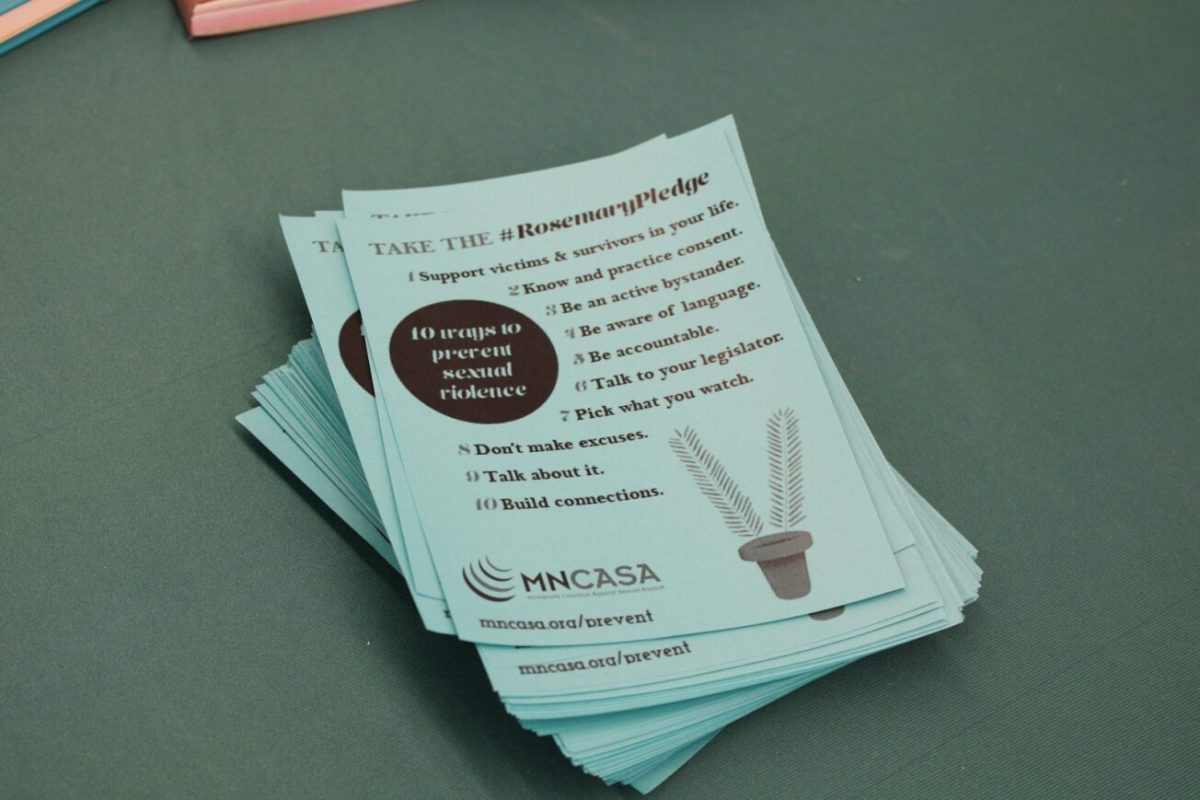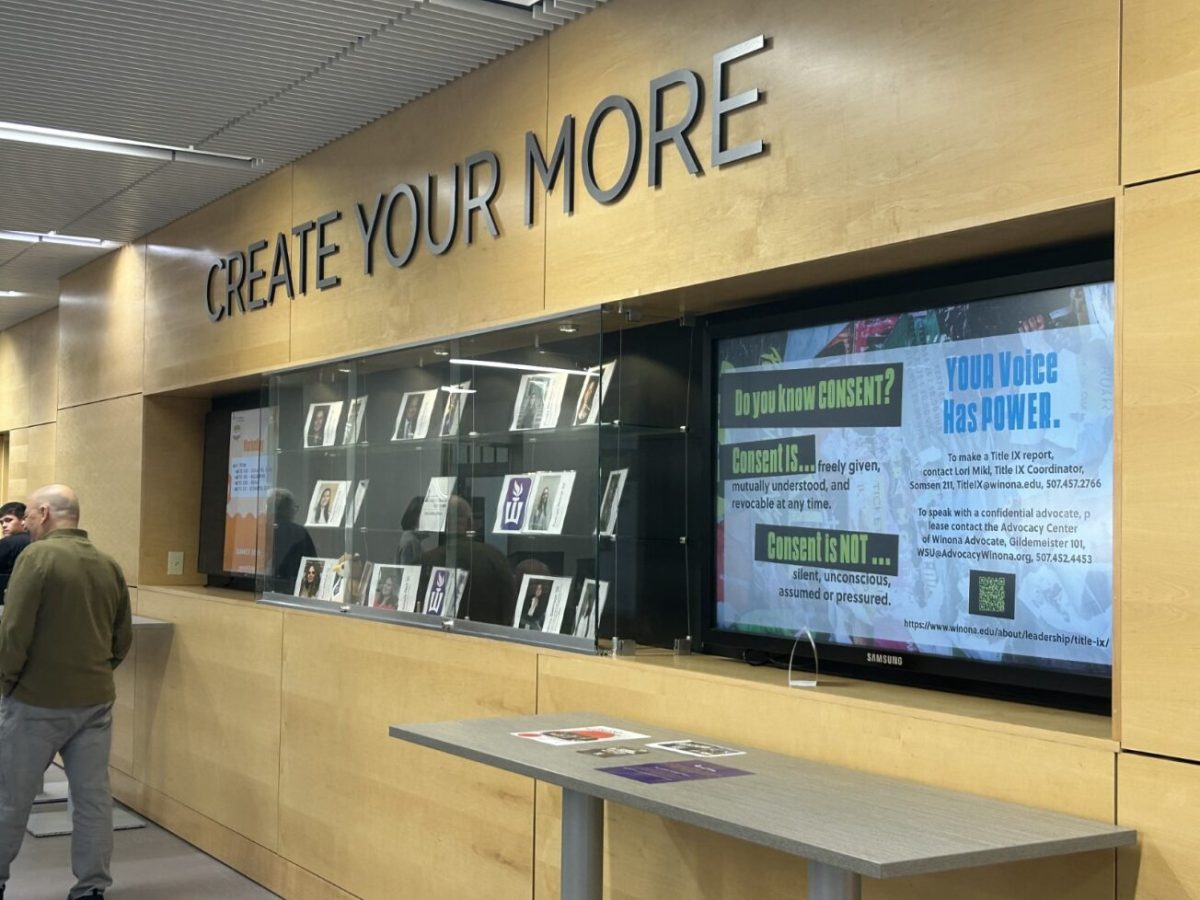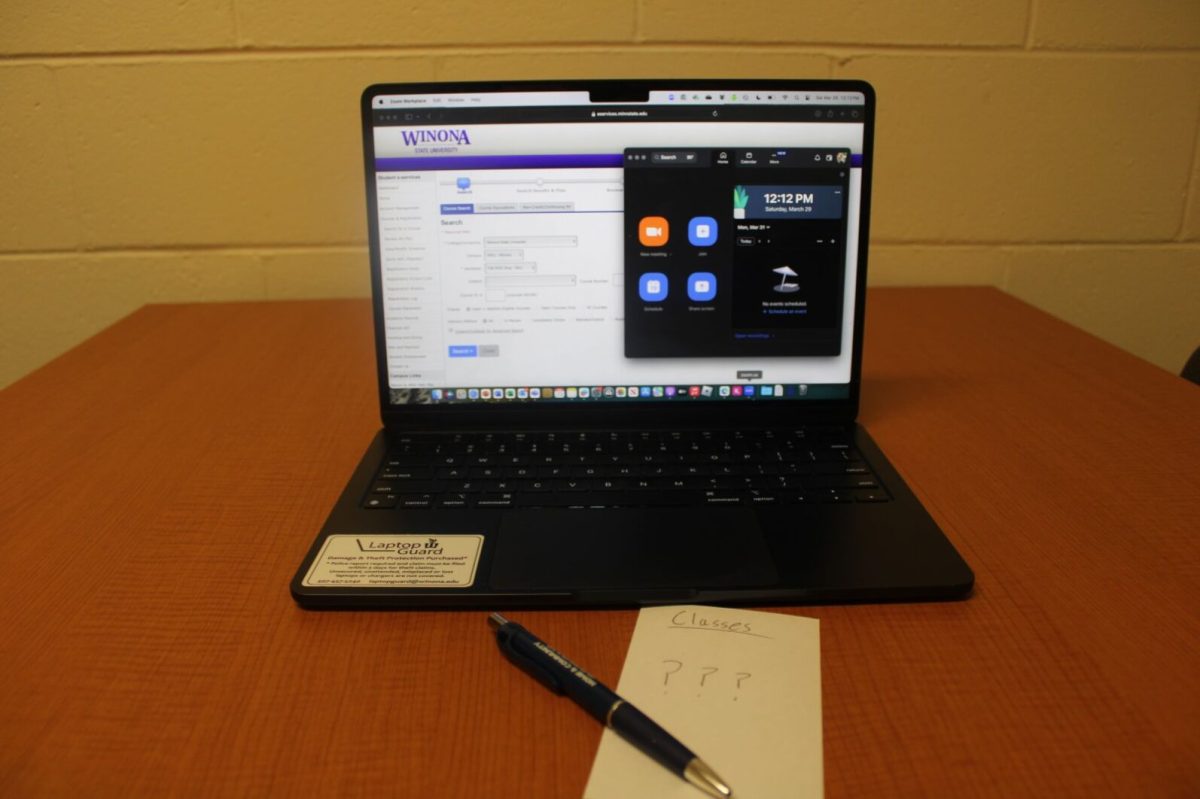Benjamin Strand/ Winonan
For National Public Health Week, Winona State University’s public health club hosted an event to inform students about the impact texting can have on health.
Vice president of the public health club Ashley Ouradnik said she was hoping to raise awareness on the health issues related to texting.
“We’ve been so focused on the texting and driving campaign,” Ouradnik said, “We forget about the other effects texting has on us.”
Ouradnik and the public health club focused on three areas of our life texting impacts: the physical, mental and social aspects.
Ouradnik said texting causes physical problems like damaged eyesight and posture and mental problems such as decreases in cognition and social problems like straining relationships.
Sophomore public health major Grace Pesch said she was intrigued by the “sexting” phenomena of texting and its impact.
“Sexting has been a prevalent problem in our society,” Pesch said. “And while it can be fun, it has some serious consequences.”
Pesch said she has heard of several cases where a life has been lost because of a “sexting” situation gone wrong.
Jessica Logan was an 18-year-old teen from Ohio who committed suicide two months after graduating high school because her ex-boyfriend leaked naked photos of her after they broke up.
The embarrassment and harassment she received from classmates after the incident drove her to take her own life.
“I just think it’s a really sad thing with someone like Jessica, who decided to take their own life because of something like ‘sexting,’” Pesch said. “It really puts in perspective just how much texting can really affect our lives.”
Yoshi Nin, a public health major from Japan in his last semester at Winona State, said personal connections to the outside world is affected by texting.
“People have less social experience with the world because anything we need can be accessed with our fingertips,” Nin said.
Nin said people already have a hard enough time causally greeting someone with a “hello” or “how are you doing” on the street. Now people can just pull their phone out of their pocket and pretend to look at it if they want to avoid interaction, Nin said.
“Texting makes the problem even worse,” Nin said.
Another problem Ouradnik and the public health club touched on was the feeling of constant attachment to our mobile devices.
Ouradnik said with cell phones, people feel like they must always be readily available to them, while this is an unrealistic expectation.
Not everything about texting and cell phones is negative, there are also some positives to come from them, Ouradnik said.
“Cell phones allow us to communicate quickly,” Ouradnik said, “like make or cancel plans or contact someone while on the run or in a rush.”
“There are pros and cons to cell phones and texting,” Ouradnik said. “I just hope students can learn to balance the two.”
Accounting major Cecilia Clark attended the event and said it has made her more aware of texting and how it impacts her life.
“I’m not sure I learned a ton of new information, but I definitely became more aware of how much texting affects my life. I was surprised at all the ways texting affects our lives, especially in ways I never even considered,” Clark said.
































